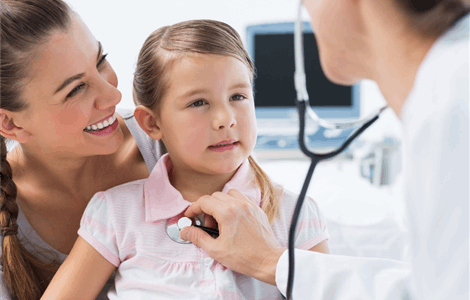
Having the vaccine is the safest way to avoid chickenpox. However, if your child still gets chickenpox, follow these tips from our GP for chickenpox in Marbella to help ease the symptoms and avoid skin infections.
What exactly is chickenpox?
Chickenpox is a widely infectious viral illness. While the incidence of chickenpox has decreased dramatically after the creation of the vaccine against chickenpox, there are still children who contract chickenpox each year. Fortunately, parents can do a great deal at home to help ease the symptoms of their children and prevent skin infections.
Chickenpox's most frequent symptom is a rash, which develops into itchy, fluid-filled blisters, and scabs. The rash normally occurs first on the face, chest, and back, and then spreads to the rest of the body.
Other chickenpox signs and symptoms may include:
- Fever
- Tiredness
- Loss of appetite
- Headache
Managing chickenpox in children
To help care for children with chickenpox, our GP for chickenpox in Marbella recommends the following tips:
- Keep your kid indoors. Since chickenpox are infectious, keep your child at home or limit their access to other people until all of their chickenpox blisters develop scabs and no new blisters emerge. The blisters usually take about a week to form scabs.
- Soak in baths with colloidal oatmeal to help ease some of the itch. Add the oatmeal under the faucet while the tub is filling. Use lukewarm water and avoid hot water.
- Use a topical ointment after washing, such as calamine lotion, petroleum jelly or another anti-itch, fragrance-free lotion. Evite topical over-the-counter antibiotics, since they can induce an allergic reaction.
- Soothe fever. Using non-aspirin medications. A serious illness that damages the liver and brain and may cause death called Reye 's Syndrome has been linked with the use of aspirin in children with chickenpox.
- Ease the itchiness. Consider an over-the-counter oral antihistamine for children. Always follow the label 's instructions, and use the correct dosage.
- Keep your child’s fingernails trimmed short to prevent skin infections resulting from scratching the blisters. For young children, place gloves or mittens on the hands to stop scratching. Be sure your child doesn't touch his or her chickenpox to minimize the scarring.
Chickenpox clears up on its own without medication for most healthy children. If you have a newborn with chickenpox, or if your child has a weakened immune system, has trouble breathing, or if any of the blisters get infected, see a board-certified dermatologist.
When to call our GP for chickenpox in Marbella
Chickenpox is a mild disease for most kids, and it gets better on its own. Some children, though, can become more severely ill with chickenpox, and will need to see a doctor.
Call our GP for chickenpox in Marbella straight away if your child develops any abnormal symptoms, such as:
- If the blisters on their skin are infected
- If your child has chest pressure, or has trouble breathing